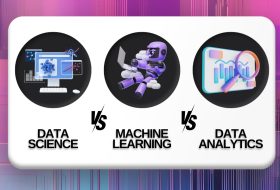In a highly competitive banking environment today, customer service becomes a new fashion necessary for the success of a strategic imperative. Therefore, Customer Relationship Management (CRM) has become very important because most banks want to have a long-term relationship with customers, leading to higher profitability. CRM manages the way organizations manage and analyze their customer interactions and data throughout the customer lifecycle. For this reason, successful customer loyalty is built in the banking sector, therefore, relying on CRM for long-term relationships.
If you want to build a career in banking, you must focus on CRM and hone the specific skills needed. From retail banking to corporate and wealth management, if you understand and get the hang of CRM tools and strategies, you will be a prized asset for any organization. The blog post will discuss the top skills that you need to hone to evolve your career toward customer relationship management in banking.
Understanding Customer Needs and Behaviour:
Each banking professional’s basis of training in CRM is the ability to understand what a customer wants and how they behave. Most banks rely on data analytics to understand how customers spend and what goals they have set for themselves. The customer data can thus be analyzed according to characteristics that correspond to particular needs, potentially increasing a customer’s satisfaction and engagement with the bank or bank employee.
In CRM, behavioural trends are not just based on transactional data but are also about the entire emotional psychology of banking. Whether timely advising with prices, customized loans, or cushion support during puncturing times, as much as customers may need to know what they will require without them asking.
Proficiency with CRM Software:
CRM software is a definite asset to banking professionals. In the case of CRM software, it allows for tracking customer interactions, retaining data in detail, enabling workflow automation, and managing customer relationships for all stakeholders more easily. Leading CRMs popular in banks include Salesforce, Microsoft Dynamics 365, and Oracle CRM, among others.
To enhance the efficiency of the bank in servicing clients, this training will show a good understanding of how to navigate and better leverage CRM tools, yielding enhanced effectiveness in customer data analytics to uncover opportunities for deeper engagement.
Problem-Solving and Conflict Resolution:
Problem-solving and conflict management are two of the most valuable skills in customer relationship management, especially in banking activities since most customer complaints either lead to dissatisfaction or loss in business. Many banks experience quite common phenomena such as fraud, technical issues, or service delays. Any delays in service completion could frustrate most customers. Therefore, it becomes more important to be able to solve these problems and mitigate customer frustration quickly to build a relationship.
Effective problem-solving requires an assessment, the creation of a few possible solutions, and setting in motion an action plan that fits the customer. Conflict resolution would require a lot of patience, understanding, and professionalism so that even when the expectations of a customer may not be fully met, the customer feels valued and listened to.
Sales and Cross-Selling Abilities:
It is all about building relationships in customer relationship management, but it is also about business development. Cross-selling and upselling are the top ways for banks to earn money without neglecting their customers. Getting to know which products or services sit well with the financial situation of a customer or financial aspirations is a coveted skill.
If a customer opens a new savings account, a client might recommend other products like credit cards home loans, or even wealth management services based on their financial needs. To do that successfully, a professional needs to understand the full range of products and services available from the bank and how to present them according to the tastes of the customer.
Digital Literacy and Social Media Engagement:
An increasingly digital-savvy population is demanding that banking services continue their transformation from merely delivering value-added services into becoming increasingly digital with the flourishing area of CRM. Customers in today’s era expect easy and speedy access to online services via various digital platforms, including, but not limited to, mobile applications, online banking transactions, and social media networks.
The ability to initiate dialogue in multiple venues (social media sites like “X,” “LinkedIn” as well as understanding tools used in digital banking)- is the competitive advantage in CRM. Further, you need to know the digital security and data privacy that enables the proper trust to be established in the online banking environment.
Effective Communication and Active Listening:
One of the essential pillars of CRM is effective communication. Clear and effective communication helps people build trust and rapport with their clients, and the company is committed to creating strong relationships. Active listening is almost as important. One should not just talk but also understand the concerns, needs, and goals of the customers. Making customers feel understood and appreciated increases their loyalty and satisfaction significantly.
Varieties of effective communication can be utilized in the banking sector. For instance, whether it’s explaining a product or service, handling customer complaints, or following up after a transaction, setting up a tone, clarity, and empathy with which effective communication occurs creates the basis for a good relationship.
There is more to success in customer relationship management in the banks than just “people”, but also developing the skills and an ability to listen or understand the intricacies of technology. A professional should well understand customer needs, master CRM software, improve communication with co-workers, and then embrace the tools of digitization. Such approaches can improve one’s career outlook in the industry by increasing reliance on CRM by banks. The banks are inexorably continuing forward with their adaptation efforts for further improving the customer experience. Those with an innate ability to build relationships, solve problems quickly, and turn data to good use will end up being some of the most valuable assets of any organization. Therefore, by achieving the best of those CRM expertise, patients will be well set for a long life in the ever-changing banking environment.










